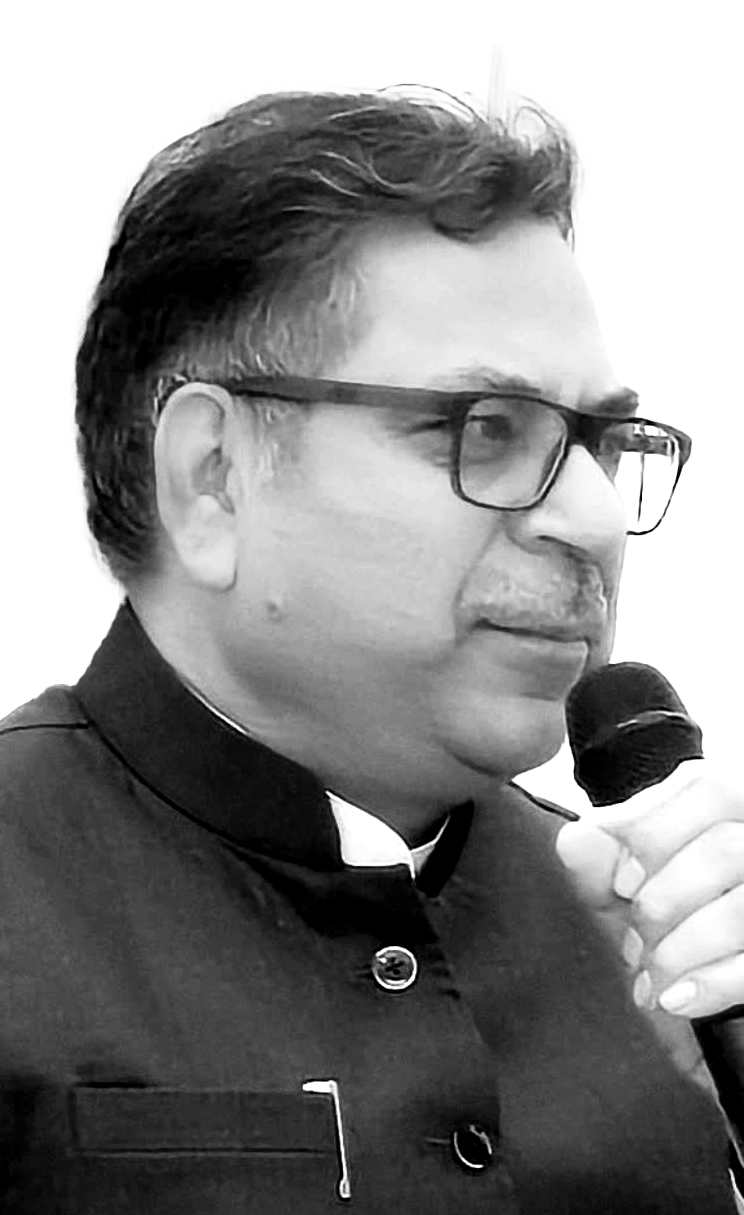What Swami Vivekananda said 125 years ago still holds true today. He said that the conversion of a Hindu doesn’t just mean one less Hindu, but an increase in enemies.
On April 1, 1899, in a conversation with a correspondent of Prabuddha Bharat magazine, Vivekananda spoke about conversion, Hindutva, and the challenges faced by those who have converted to Hinduism and later returned to their original faith. He said that conversion should not be accepted in any civilized society.
The issue of conversion has been a longstanding problem in our country. Mahatma Gandhi also opposed conversion. He believed that no one should try to convert another person. He felt that religious conversion under the guise of humanitarian work was a sign of a diseased mind. Gandhi condemned conversions that involved deceit, greed, or coercion, especially when they targeted the poor and deprived.
In our country, conversions have often been carried out under various pretexts, such as claims of humanitarian work, exploitation of poverty, or deceitful tactics like love jihad, leading to the conversion of many people.
During the Mughal and British rule in India, systematic efforts were made to forcibly convert Hindus, which led to the creation of Pakistan and Bangladesh. The consequences of these conversions are still visible today in the strained relations with our neighboring countries.
In the current context, Swami Vivekananda’s statement from 125 years ago about the dangers of conversion becomes increasingly relevant. He had warned that converting Hindus doesn’t just reduce their number, but also increases the number of enemies. This view resonates today as the ongoing issue of religious conversion continues to impact Indian society.
Interestingly, while conversion is being encouraged in India in the name of secularism and democracy, it is considered illegal in many Islamic countries. In nations like Saudi Arabia, Sudan, Somalia, Jordan, and Egypt, conversion is prohibited by law, with severe punishments for those who attempt it. In the Maldives, a person who converts from Islam can even lose their citizenship. This contrast highlights the hypocrisy of allowing conversions in India while such practices are banned in other parts of the world.
To counter conversions, several states in India, including Gujarat, Madhya Pradesh, Uttar Pradesh, Uttarakhand, Jharkhand, and Odisha, have passed laws to prevent it. However, the effectiveness of these laws in curbing conversions remains uncertain.
The growing trend of conversions in many parts of India poses a serious threat to social harmony and national security. As a result, numerous organizations across the country are working to raise awareness among the youth to stop the practice of conversion and protect the integrity of the nation.
Many incidents of conversion come to light in many parts of Rajasthan. You will remember how a conspiracy was hatched a few years ago for a big incident of mass conversion near the capital Jaipur. Such conspiracies have also come to the fore in the Mewat and Braj regions of the state.
Many attempts were made for an anti-conversion bill in Rajasthan, but the Congress governments suffering from prejudice and appeasement policy never tried to consider this important issue. It is good that the BJP government of the state has taken a decision and approved the bill to stop illegal conversion in the state and provide for strict punishment. The government has decided to bring “The Rajasthan Prohibition of Unlawful Conversion of Religion Bill-2024”.
After this bill becomes a law, no person or institution will be able to convert a person by using misrepresentation, fraud, force, undue influence etc. If any person or institution does such an act, they will be given severe punishment. If a person marries with the intention of converting a person against the law, then the family court can declare such marriage invalid. In this law, the crimes will be non-bailable and cognizable. Certainly this is a progressive bill.
There was a demand for such a law in the state for the last two decades. In the last session of the fifteenth assembly, a private bill with a similar draft, ‘Rajasthan Prohibition of Unlawful Conversion of Religion Bill 2023’, was brought by me. But the then Speaker of the Assembly rejected it saying that it is against Article 25 of the Constitution. The then Congress government, plagued by prejudice, did not consider this bill worthy, while the BJP, playing a strong role of opposition, raised a strong voice in support of this bill from the streets to the House and demanded a ban on conversion, which is very important in the state and national interest, for which the BJP governments of states like Gujarat, Uttar Pradesh etc. and now the BJP government of Rajasthan have also taken important steps.
The ban on conversion is not tied to any specific religion or sect; rather, it is about preserving the social fabric. A law prohibiting religious conversion is justified because it does not infringe on an individual’s right to religious freedom or personal choice.
Religious conversion should not pose a social, political, or legal challenge to the country or its democracy. Therefore, there should be a law in place to prevent forced conversions. The Bharatiya Janata Party has consistently maintained that everyone has the right to follow their religion of choice, but no one should be forced to convert.
An important question arises regarding those who have converted for various reasons but now wish to return to their original faith. Swami Vivekananda, in his response to a correspondent of Prabuddha Bharat magazine, said that such individuals should indeed be welcomed back, emphasizing that they can and should be accepted back into their original faith.
The author is bjp haryana in-charge and former bjp rajasthan president.























